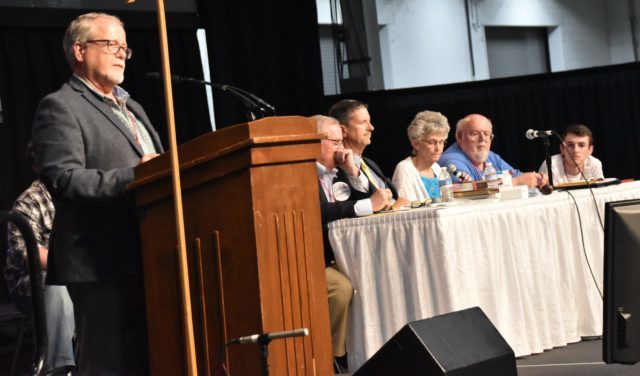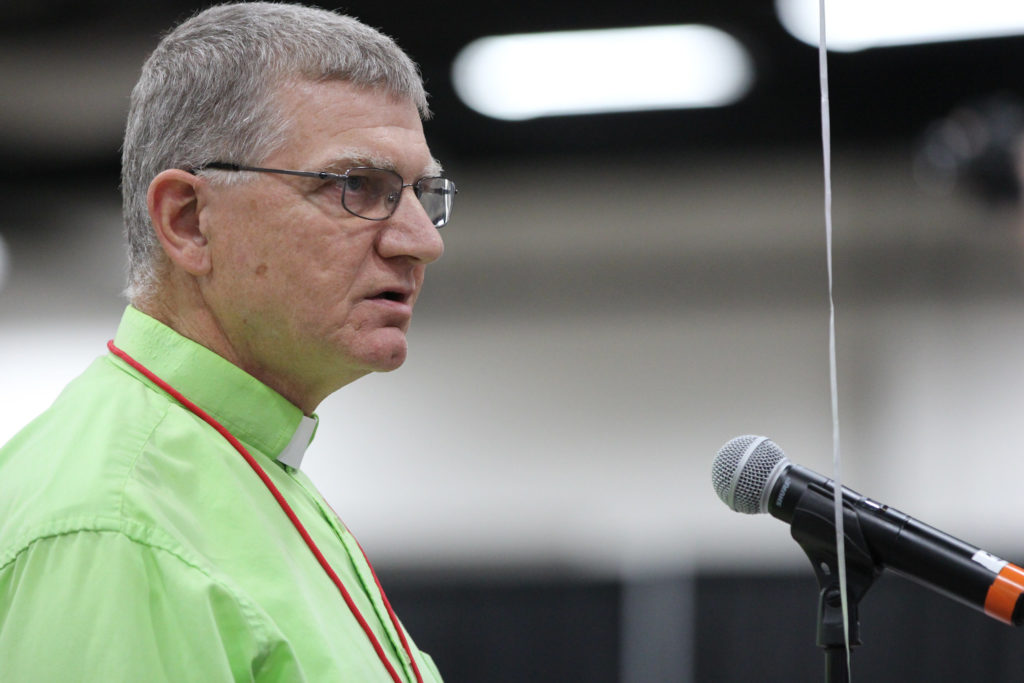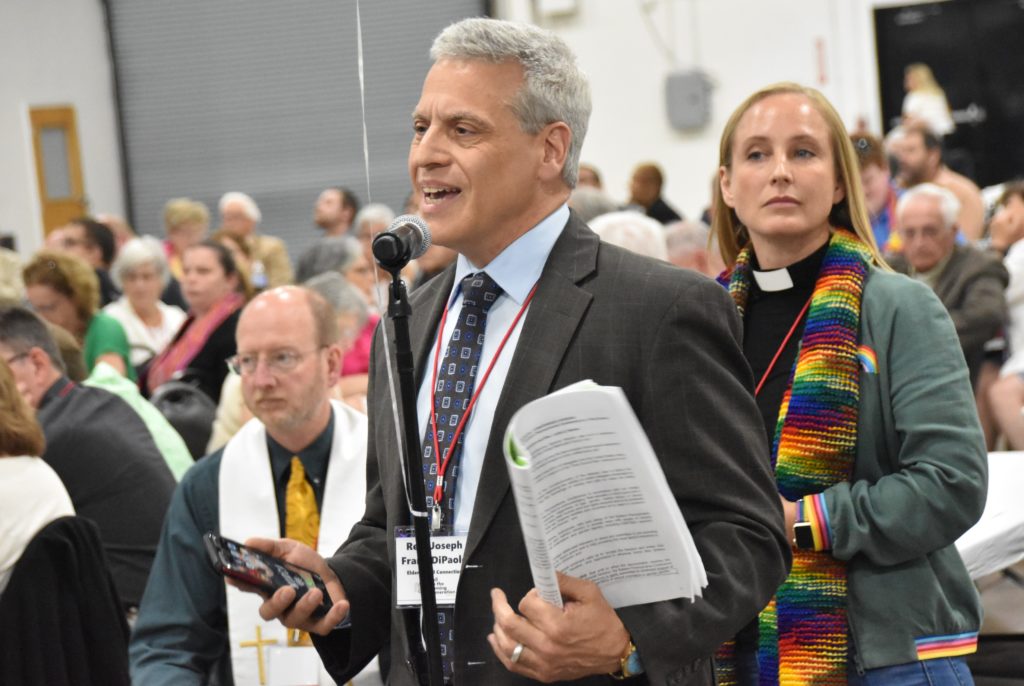
The UMC’s Judicial Council has declined to rule on a decision made by Bishop Peggy Johnson at the 2019 Eastern PA Annual Conference because the request for its judicial review was improperly related to a parliamentary point of order rather than a ruling of law. Thus, the council, which determines the validity of all episcopal rulings of law, says it lacks jurisdiction to intercede in this case.

The request came from the Rev. Christopher Fisher during debate at the conference session after the bishop’s responded to a point of order question by the Rev. Joseph DiPaolo. The issue was Resolution 2019-13 which declared Eastern PA to be a “One Church Plan Conference” in spirit. The Revs. James McIntire and Lydia Muñoz submitted that resolution in response to the Special General Conference’s rejection of the One Church Plan and approval of the Traditional Plan, which calls for stricter enforcement of church law denying marriage and ordained ministry rights to lesbian, gay and bisexual members.
DiPaolo questioned if approval of the resolution would be in violation of church law. Bishop Johnson said no, because the One Church Plan resolution was merely “aspirational” and did not mean churches and ministers could violate the traditional rules and restrictions in the UMC’s Book of Discipline. Fisher asked the bishop to seek a legal ruling from the Judicial Council on DiPaolo’s question and her response. His request was approved by the required one-fifth of the conference voting body.

Conference Chancellor Matthew Morley submitted the request and offered a “synopsis and analysis” of the church court’s decision in Judicial Council Memorandum No. 1387.
The Judicial Council did not address the legality of Resolution 2019-13. Rather, the Judicial Council found that it had no jurisdiction over the issue. Their reasoning was that there was no official request for an episcopal ruling on a matter of law. And since there was no official request, there was no episcopal ruling, which would convey jurisdiction to the council.
Rev. DiPaolo’s request was, in the opinion of the Judicial Council, a “Point of Order concerning the parliamentary procedure for ruling proposed legislation out-of-order.” This is true even though Rev. Fisher subsequently characterized Rev. DiPaolo’s colloquy with the Bishop as a “ruling of law.”
To properly challenge a decision of a bishop at Annual Conference, the following formalities must be followed, according to the UMC Constitution ¶ 51; Discipline ¶ 2609.6):
- The request for a decision of law must be presented in writing.
- The request for the decisions of law must relate to and be submitted in the regular business of the annual conference session.
- The Bishop must issue a decision of law in writing no later than 30 days after the close of the annual conference session.

Morley goes on to suggest “a very good example of how this process should work” citing ruling of law by Bishop Michael McKee at the 2019 North Texas Annual Conference. McKee ruled a similar resolution to be “aspirational” and thus in order; and his ruling was then submitted for judicial review and placed on the Judicial Council’s fall docket.
“The resolution itself was strikingly similar to our Resolution 2019-13,” writes Morley: ‘THEREFORE BE IT RESOLVED that as people of the North Texas Conference we aspire to behave as One Church Congregations and Conference.” McKee’s decision of law (permitting the resolution) was affirmed by the Judicial Council in Decision No. 1392. Under ¶ 51 of the Constitution and Discipline ¶ 2609.6, Bishop McKee’s ruling is now the “law of the Church,” since it has been affirmed by the Judicial Council.
Bishop Johnson reported the Eastern PA Conference request to the Judicial Council under 2609.7, Morley states, as an appeal of an episcopal decision on a question of law when such decisions are appealed by one-fifth of the members of the conference. But the session minutes do not indicate that a formal request for an episcopal ruling was made during DiPaolo’s “colloquy” with the bishop regarding his point of order concerning the parliamentary procedure for ruling proposed legislation out-of-order.
All episcopal rulings on matters of law must be filed with the Judicial Council, according to Discipline ¶ 2609.6, which triggers an automatic review by the Judicial Council. However, the council sees its jurisdiction as limited and construed narrowly, as explained in its response to the Eastern PA Conference request.
